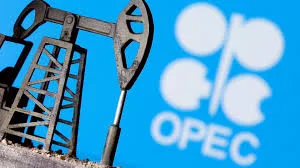Iran, a key member of the Organization of the Petroleum Exporting Countries (OPEC), has approved a plan to increase its oil output to four million barrels per day, according to the Tasnim news agency. The report did not specify a timeline for this increase.
The decision, made by an economic council led by Iran’s interim president Mohammad Mokhber, aims to raise the country’s production from its current 3.6 million barrels per day to four million. This move comes in the wake of the United Arab Emirates (UAE) increasing its crude oil production capacity, challenging OPEC+ decisions to maintain higher prices through voluntary supply cuts.
Abu Dhabi National Oil Co (ADNOC) recently boosted its production capacity to 4.85 million barrels per day from 4.65 million, inching closer to its goal of five million barrels per day by 2027. According to Bloomberg, the UAE is expected to reach this target ahead of schedule, potentially by late 2025 or early 2026.
These developments are likely to create friction within OPEC+, which is scheduled to meet on June 1 in Vienna to discuss production quotas for the latter half of the year. The UAE’s recent expansion, part of a $150 billion investment plan by ADNOC, aims to ensure that its increased production capabilities do not remain underutilized. Currently, the UAE produces about two-thirds of its capacity, a point of contention given other OPEC+ members, especially in Africa, struggle to meet their quotas due to underinvestment.
Should Iran and the UAE both increase their oil production and if OPEC+ fails to reach a consensus on continuing with production cuts, international oil prices could decline. This potential drop in oil prices would likely lead to lower petroleum prices in Pakistan and other countries dependent on oil imports.



